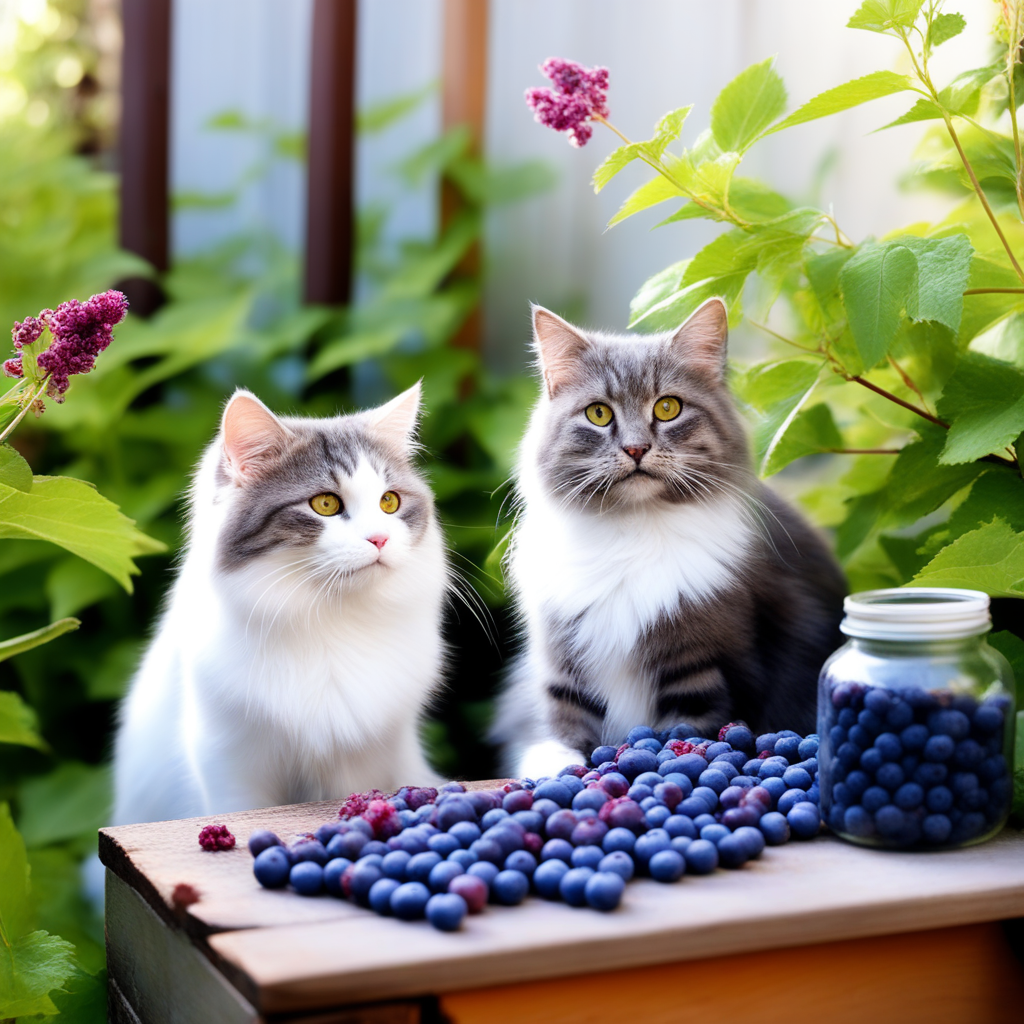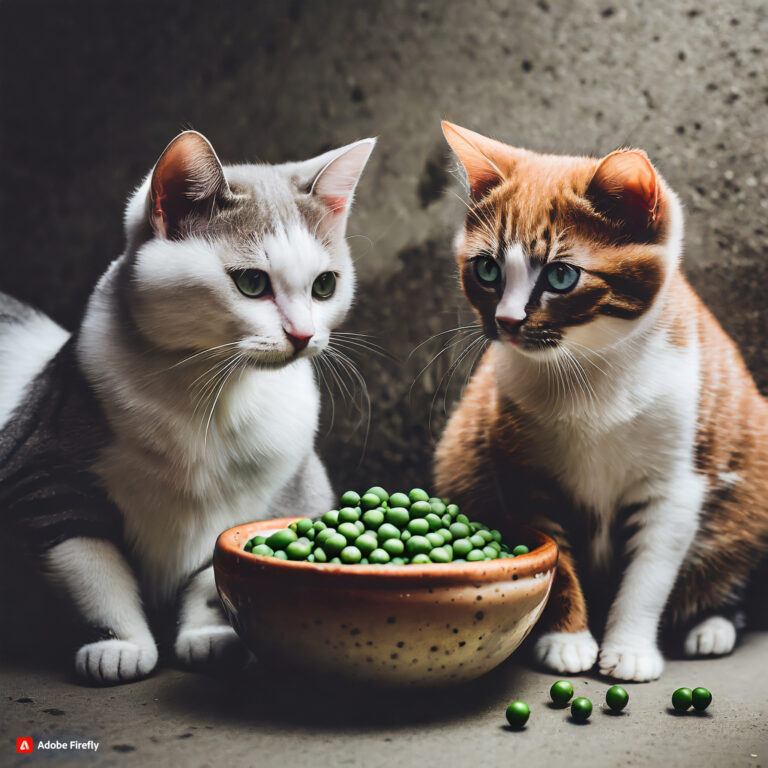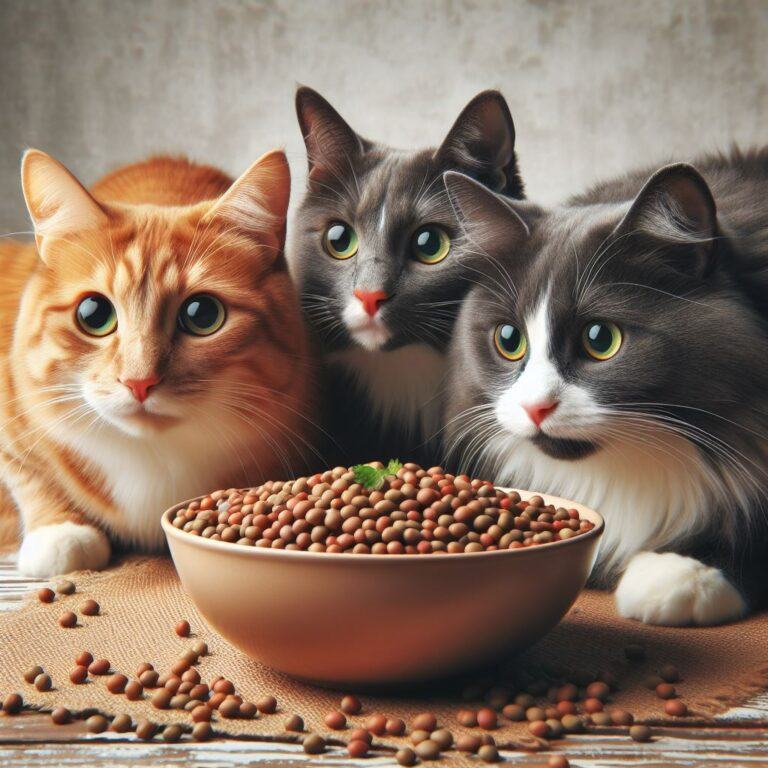Can Cats Safely Eat Blueberries
In the pet-loving community, I see a lot of you aiming to treat your furry companions with something special from time to time. In that spirit, I’ve investigated a common question: Can cats safely eat blueberries? The short answer is YES. While cats have specific dietary requirements, blueberries are non-toxic and they can enjoy them in small amounts.
Blueberries are a powerhouse of antioxidants, vitamins C and K, and fiber, which can contribute positively to your cat’s health. These nutrients support your cat’s immune system and contribute to its overall well-being.
When it comes to portion size, moderation is key. A cat’s stomach is small, so even a few blueberries can be plenty. Offering blueberries too often or in large amounts might upset their digestive system, which is primarily designed to process meat.
It’s important to keep any blueberry treat as just that—a treat, certainly not a staple of their diet.
The best method to serve blueberries to your cat is fresh or frozen, ensuring no additives or sugars are present. A safe way to start is by giving them one or two berries and gauging their interest and reaction.
I recommend checking with your veterinarian before making any diet changes, especially if your cat has health issues.
Understanding the Feline Diet: What Do Cats Naturally Prefer?
Cats are often portrayed as finicky eaters, and there’s truth to this. They have evolved as obligate carnivores, which means their bodies are designed to process and thrive on a meat-based diet.
Their natural diet typically consists of protein-rich foods such as chicken or beef that provide them with essential nutrients like taurine, an amino acid vital for heart and eye health.
Unlike humans, cats don’t require fruits or vegetables to maintain a balanced diet. However, this doesn’t mean that cats can’t enjoy non-meat foods occasionally. Blueberries, for example, can offer an extra dose of vitamins and antioxidants.
These nutrients, while not essential, could potentially support aspects of cat health, like strengthening their immune system.
When considering fruits like blueberries for your cat, it’s important to remember that they should only complement the diet, not replace any vital components.
Amino acids, fatty acids, and certain vitamins specific to their carnivorous diet cannot be adequately provided by fruits. Blueberries are to be offered as a light snack, not a dietary staple.
The inclusion of small amounts of high-antioxidant foods such as blueberries is what I would call an enrichment to a cat’s diet. While they provide minor nutritional benefits, the variety can be appealing to some feline friends, potentially stimulating their interest in food.
Make sure these treats don’t comprise more than 10% of their daily calorie intake to maintain the nutritional integrity of their diet.
Healthy Treats: How to Introduce Blueberries to Your Cat
If you’ve decided to add blueberries to your cat’s snack options, it’s crucial to start small. Introduce blueberries gradually to give your cat’s digestive system time to adjust.
Watch your cat closely after they eat blueberries for the first time. Any signs of digestive upset, like vomiting or diarrhea, mean you should eliminate blueberries from their diet and consult your veterinarian.
Incorporate blueberries into your cat’s treats by mashing them into their regular food or freezing them for a crunchy snack. Always remove the stems and leaves and ensure the blueberries are clean and pesticide-free.
Remember, while blueberries are safe, they should only be an occasional treat. The bulk of your cat’s diet should be high-quality cat food that’s formulated to meet their nutritional requirements.
Moderation is key when giving your cat blueberries. A few here and there can be a nice change of pace, but it’s your responsibility to keep their overall diet balanced and health-focused.







